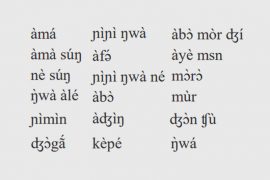On the final day of the Monsoon session of the Lok Sabha, India’s Minister of State for Labour and Employment, Bandaru Dattatreya, introduced the Code on Wages Bill, 2017. Unifying four separate wage laws, the stated aim of the bill is to provide a universal minimum wage for all sectors of the Indian labour force.
In his opening speech, the minister stated that 40 crore (400 million) workers from the unorganized sector would be able to avail the new minimum wage; stressing repeatedly and to applause, that worker’s rights would not be infringed.
The Code on Wages Bill will amalgamate the Payment of Wages Act of 1936, the Minimum Wages Act of 1948, the Payment of Bonus Act of 1965 and the Equal Remuneration Act of 1976. But since it was introduced on the final day of the Monsoon session, it will only be discussed and passed/withdrawn in the Winter Session commencing.
Copyright©Madras Courier, All Rights Reserved. You may share using our article tools. Please don't cut articles from madrascourier.com and redistribute by email, post to the web, mobile phone or social media.Please send in your feed back and comments to editor@madrascourier.com











